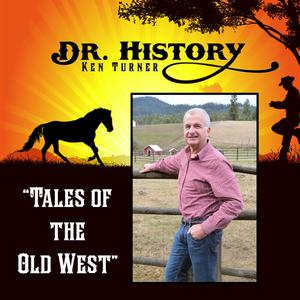
Dr. History's Tales of the Old West
- 14 minutes 2 secondsNelson Story
After striking it rich in Virginia City, Montana, Story
financed the first cattle drive from Texas to Montana in 1866. He faced all the
dangers and struggles of moving cattle through Indian territory to bring Texas
longhorns and Texas cowboys to the miners in Montana.
Learn more about your ad choices. Visit podcastchoices.com/adchoices
21 January 2025, 7:00 am - 21 minutes 52 secondsObsidian Cliff
Obsidian Cliff in Yellowstone Park is the largest deposit
of obsidian in North America. Native Americans have used this for thousands of
years for scrapers, spears and arrow heads. More than two dozen tribes would
peacefully gather obsidian in this war free zone. Pieces of this obsidian has
been found as far as the East coast and central America. Knapping, the process
of making arrow heads is still used today.
Learn more about your ad choices. Visit podcastchoices.com/adchoices
14 January 2025, 7:00 am - 23 minutes 26 secondsPhotographers and Painters
Easterners wanted stories and pictures of the old west, but cameras were heavy and difficult to use. William Jackson took thousands of pictures, most important, of Yellowstone. Soloman Butcher took pictures of the pioneers. Albert Bierstadt’s paintings were in museums. Frederic Remington and Charles M. Russell became the most famous painters and sculptors of the west, because of detail and they focused on the people and their way of life.
Learn more about your ad choices. Visit podcastchoices.com/adchoices
7 January 2025, 7:00 am - 22 minutes 56 secondsGeorge Washington Bush
His parents were freed slaves so George could travel anywhere. He worked for the Hudson's Bay Company in the Rocky Mountains. He tried farming but was drawn to Oregon, sold his farm and joined a wagon train. Upon arriving, he found that blacks were not allowed to settle in Oregon. He moved to the Puget Sound where he helped other settlers. He played a big role in securing the territory for the United States.
Learn more about your ad choices. Visit podcastchoices.com/adchoices
17 December 2024, 7:00 am - 23 minutes 7 secondsLadies of the Yukon
Fifty-five-year-old Anna DeGraf climbed the rugged Chilkoot Pass. She was looking for her son. With her sewing machine, she made clothes and tents. She spent 20 years on the Last Frontier. Harriet Pullen was a cook in Skagway. She made apple pies for the miners. She used her horses to start a freighting company hauling miners supplies. She established a luxury hotel and died in Skagway.
Learn more about your ad choices. Visit podcastchoices.com/adchoices
10 December 2024, 7:00 am - 21 minutes 29 secondsQueen of the Klondike
Belinda Mulrooney created an empire in the Yukon. Her supplies required 30 trips over the Chilkoot Pass. She built a hotel with great food, as good as any in the states. Her hotel was the first property with electricity, she brought in telegraph and telephones, formed a water supply company and provided goods and services for the miners. She partnered with miners and became wealthy, until she got married.
Learn more about your ad choices. Visit podcastchoices.com/adchoices
3 December 2024, 7:00 am - 23 minutes 45 secondsWomen in the Yukon
Chasing Yukon gold, one in ten were women. Some with husbands or on their own. They climbed the Chilkoot or White Pass Trails enduring cold, wet conditions and meager rations. They staked or leased claims. Some found riches but also started schools or businesses while raising children. They helped establish more than a community, they created civilization in the wilderness.
Learn more about your ad choices. Visit podcastchoices.com/adchoices
26 November 2024, 7:00 am - 22 minutes 49 secondsThe Whitmans and Spaulding - Part Three
After the journey, the Spauldings established their mission in Lapwai, in what is now North Idaho. Eliza was well liked and respected by the Nez Perce. Henry, however, was not well liked, even resorting to whipping those who didn't obey. The Whitmans established their mission near present day Walla Walla. Narcissa did not like the always present Cayuse in her home. The influx of immigrants brought disease that nearly wiped out the Cayuse tribe. They ambushed the Whitmans killing them and eleven others.
Learn more about your ad choices. Visit podcastchoices.com/adchoices
19 November 2024, 7:00 am - 23 minutes 23 secondsThe Whitmans and the Spauldings - Part Two
The future missionaries made it to a rendezvous on the Green River. The Native Americans were amazed at seeing their first white women. They now faced the most difficult part of the journey. Across southern Idaho, to Fort Boise, then Blue Mountains and on to Fort Walla Walla. Now they were ready to establish their missions. Next week, part three, the tragedy.
Learn more about your ad choices. Visit podcastchoices.com/adchoices
12 November 2024, 7:00 am - 24 minutes 21 secondsThe Whitmans and the Spauldings - Part One
Narcissa wanted to be a missionary, as did Marcus, so they got married more as a business agreement. The same with Henry and Eliza Spaulding. They joined forces to travel to the Oregon territory to preach to the Nez Perce and Flathead Indians. The first white women to make the trek on what would be the Oregon Trail.
Learn more about your ad choices. Visit podcastchoices.com/adchoices
5 November 2024, 7:00 am - 23 minutes 47 secondsThe Lumber Rush - Part Three
Idaho lumberjacks sent logs down the rivers, but one log could cause huge jams. Dynamite worked, but was dangerous. Ephraim Shay invented a small railroad engine that effectively pulled log laden rail cars. John Dolbeer invented the steam driven "donkey engine" for extracting logs. Simon Benson invented the first successful method for floating log rafts to San Diego.
Learn more about your ad choices. Visit podcastchoices.com/adchoices
29 October 2024, 6:00 am - More Episodes? Get the App
Your feedback is valuable to us. Should you encounter any bugs, glitches, lack of functionality or other problems, please email us on [email protected] or join Moon.FM Telegram Group where you can talk directly to the dev team who are happy to answer any queries.
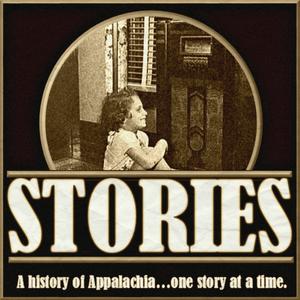 Stories-A History of Appalachia
Stories-A History of Appalachia
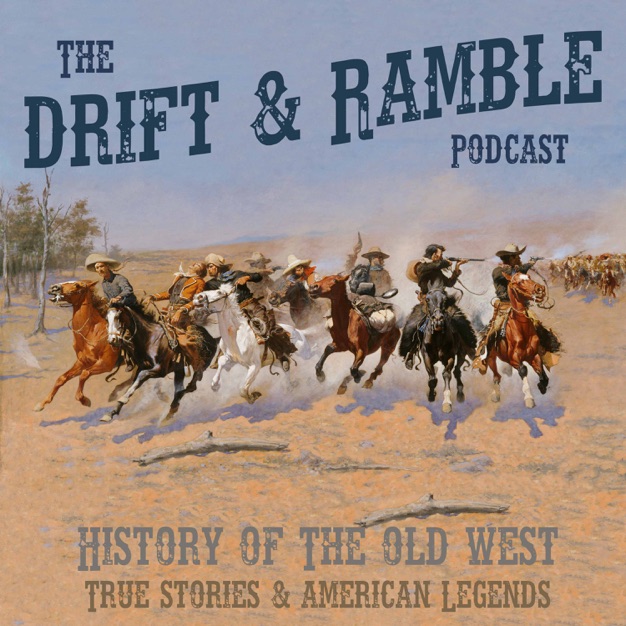 Drift & Ramble Podcast
Drift & Ramble Podcast
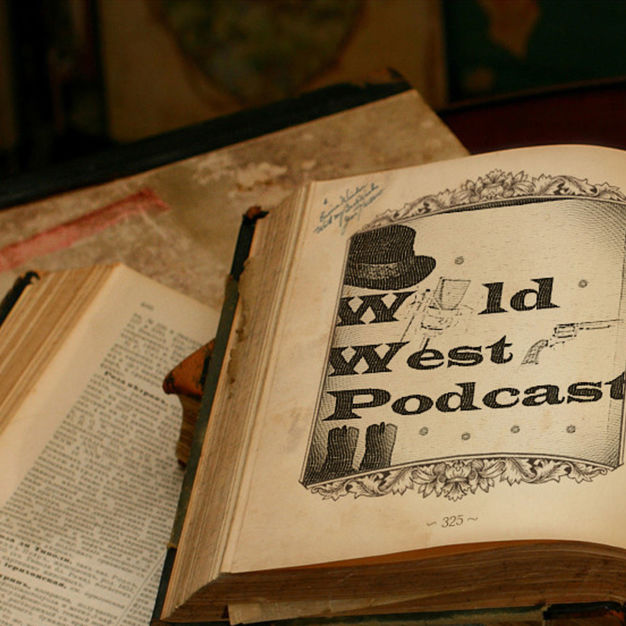 Wild West Podcast
Wild West Podcast
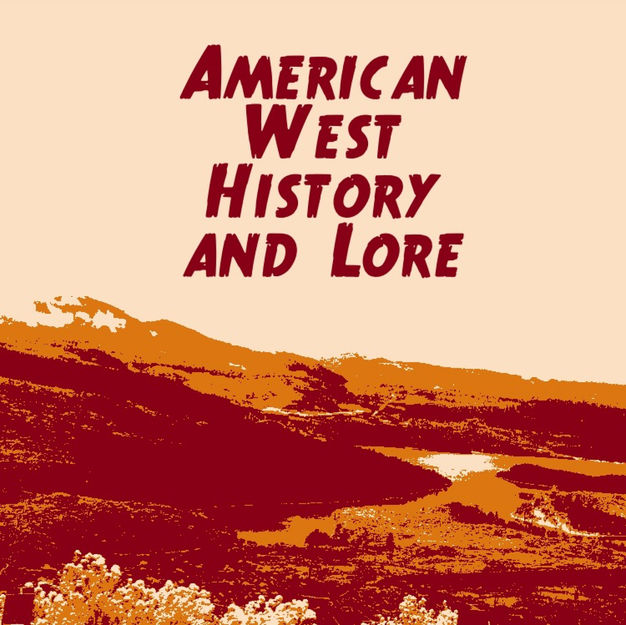 American West History and Lore
American West History and Lore
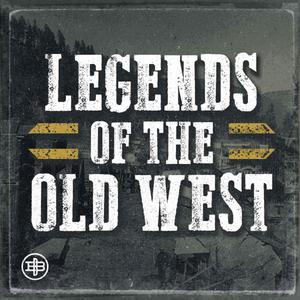 Legends of the Old West
Legends of the Old West
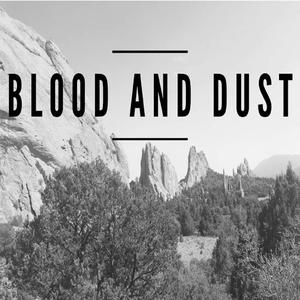 Blood and Dust : Wild West True Crime
Blood and Dust : Wild West True Crime